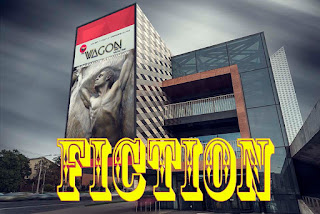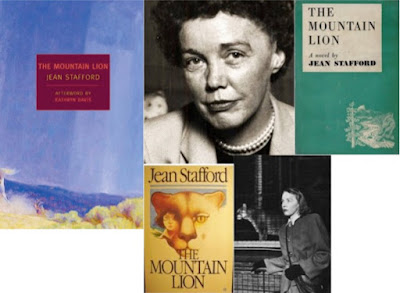"At the hour when our imagination and our ability to associate are at their height," Hermann Hesse asserted in contemplating the three styles of reading, "we really no longer read what is printed on the paper but swim in a stream of impulses and inspirations that reach us from what we are reading."
A little something from Irwin Shaw:
Fifth Avenue was shining in the sun when they left the Brevoort and started walking toward Washington Square. The sun was warm, even though it was November, and everything looked like Sunday morning--the buses, and the well-dressed people walking slowly in couples and the quiet buildings with the windows closed.
Michael held Frances' arm tightly as they walked downtown in the sunlight. They walked lightly, almost smiling, because they had slept late and had a good breakfast and it was Sunday. Michael unbuttoned his coat and let it flap around him in the mild wind. They walked, without saying anything, among the young and pleasant-looking people who somehow seem to make up most of the population of that section of New York City.
"Look out," Frances said, as they crossed Eighth Street. "You'll break your neck."
Michael laughed and Frances laughed with him.
"She's not so pretty, anyway," Frances said. "Anyway, not pretty enough to take a chance breaking your neck looking at her."
--from The Girls in Their Summer Dresses, 1939
Isaac Bashevis Singer, when asked if Arthur Conan Doyle influenced him in any way, replied:
"Well, I don't think that the stories of Sherlock Holmes had any real influence on me. But I will say one thing, from my childhood I have always loved tension in a story. I liked that a story should be a story. That there should be a beginning and an end, and there should be some feeling of what will happen at the end. And to this rule I keep today. I think that storytelling has become in this age almost a forgotten art. But I try my best not to suffer from this kind of amnesia. To me a story is still a story where the reader listens and wants to know what happens. If the reader knows everything from the very beginning, even if the description is good, I think the story is not a story.
--from The Paris Review, Fall 1968
I love this from John Cheever:
It was one of those midsummer Sundays when everyone sits around saying, "I drank too much last night." You might have heard it whispered by the parishioners leaving church, heard it from the lips of the priest himself, struggling with his cassock in the vestiarium, heard it from the golf links and the
tennis courts, heard it from the wildlife preserve where the leader of the Audubon group was suffering from a terrible hangover.
"I drank too much," said Donald Westerhazy.
"We all drank too much," said Lucinda Merrill.
"It must have been the wine," said Helen Westerhazy. "I drank too much of that claret."
This was at the edge of the Westerhazys pool. The pool, fed by an artesian well with a high iron content, was a pale shade of green. It was a fine day. In the west there was a massive stand
of cumulus cloud so like a city seen from a distance from the bow of an approaching ship that it might have had a name. Lisbon. Hackensack.
The sun was hot. Neddy Merrill sat by the green water, one hand in it, one around a glass of gin.
--from The Swimmer, 1964
A classic from Joseph Mitchell:
To a devoted McSorley customer, most other New York City saloons are tense and disquieting. It is possible to relax in McSorley's. For one thing, it is dark and gloomy, and repose comes easy in a gloomy place. Also, the barely audible heartbeat-like ticking of the old clocks is soothing. Also, there is a thick, musty smell that acts as a balm to jerky nerves; it is really a rich compound of the smells of pine sawdust, tap drippings, pipe tobacco, coal smoke, and onions. A Bellevue intern once remarked that for some mental states the smell in McSorley's would be a lot more beneficial than psychoanalysis or sedative pills or prayer.
--from McSorley's Wonderful Saloon, 1943
From The Monk, by Matthew Gregory Lewis:
The full moon, ranging through a blue and cloudless sky, shed upon the trees a trembling lustre, and the waters of the fountains sparkled in the silver beam; a gentle breeze breathed the fragrance of orange-blossoms along the alleys, and the nightingale poured forth her melodious murmur from the shelter of an artificial wilderness.*
Doting upon his wife, and believing that a look of pity bestowed upon another was a theft from what he owed to her, he drove Matilda from his presence; he forbade her ever again appearing before him.**
One of literature's guardian angels, Margaret Drabble, has this to say about John Cowper Powys:
"The realm of John Cowper Powys is dangerous. The reader may wander for years in this parallel universe, entrapped and bewitched, and never reach its end. There is always another book to discover, another work to reread. Like Tolkien, Powys has invented another country, densely peopled, thickly forested, mountainous, erudite, strangely self-sufficient. This country is less visited than Tolkien's, but it is as compelling, and it has more air."***
Footnotes:
* - "the artificial wilderness" is what jazzes me completely.
** - Thievery by a look, what was owed to someone.
*** - It's why I love Margaret Drabble. She said this in 2006, published in The Guardian.
Michael held Frances' arm tightly as they walked downtown in the sunlight. They walked lightly, almost smiling, because they had slept late and had a good breakfast and it was Sunday. Michael unbuttoned his coat and let it flap around him in the mild wind. They walked, without saying anything, among the young and pleasant-looking people who somehow seem to make up most of the population of that section of New York City.
"Look out," Frances said, as they crossed Eighth Street. "You'll break your neck."
Michael laughed and Frances laughed with him.
"She's not so pretty, anyway," Frances said. "Anyway, not pretty enough to take a chance breaking your neck looking at her."
--from The Girls in Their Summer Dresses, 1939
Isaac Bashevis Singer, when asked if Arthur Conan Doyle influenced him in any way, replied:
"Well, I don't think that the stories of Sherlock Holmes had any real influence on me. But I will say one thing, from my childhood I have always loved tension in a story. I liked that a story should be a story. That there should be a beginning and an end, and there should be some feeling of what will happen at the end. And to this rule I keep today. I think that storytelling has become in this age almost a forgotten art. But I try my best not to suffer from this kind of amnesia. To me a story is still a story where the reader listens and wants to know what happens. If the reader knows everything from the very beginning, even if the description is good, I think the story is not a story.
--from The Paris Review, Fall 1968
I love this from John Cheever:
It was one of those midsummer Sundays when everyone sits around saying, "I drank too much last night." You might have heard it whispered by the parishioners leaving church, heard it from the lips of the priest himself, struggling with his cassock in the vestiarium, heard it from the golf links and the
tennis courts, heard it from the wildlife preserve where the leader of the Audubon group was suffering from a terrible hangover.
"I drank too much," said Donald Westerhazy.
"We all drank too much," said Lucinda Merrill.
"It must have been the wine," said Helen Westerhazy. "I drank too much of that claret."
This was at the edge of the Westerhazys pool. The pool, fed by an artesian well with a high iron content, was a pale shade of green. It was a fine day. In the west there was a massive stand
of cumulus cloud so like a city seen from a distance from the bow of an approaching ship that it might have had a name. Lisbon. Hackensack.
The sun was hot. Neddy Merrill sat by the green water, one hand in it, one around a glass of gin.
--from The Swimmer, 1964
A classic from Joseph Mitchell:
To a devoted McSorley customer, most other New York City saloons are tense and disquieting. It is possible to relax in McSorley's. For one thing, it is dark and gloomy, and repose comes easy in a gloomy place. Also, the barely audible heartbeat-like ticking of the old clocks is soothing. Also, there is a thick, musty smell that acts as a balm to jerky nerves; it is really a rich compound of the smells of pine sawdust, tap drippings, pipe tobacco, coal smoke, and onions. A Bellevue intern once remarked that for some mental states the smell in McSorley's would be a lot more beneficial than psychoanalysis or sedative pills or prayer.
--from McSorley's Wonderful Saloon, 1943
From The Monk, by Matthew Gregory Lewis:
The full moon, ranging through a blue and cloudless sky, shed upon the trees a trembling lustre, and the waters of the fountains sparkled in the silver beam; a gentle breeze breathed the fragrance of orange-blossoms along the alleys, and the nightingale poured forth her melodious murmur from the shelter of an artificial wilderness.*
Doting upon his wife, and believing that a look of pity bestowed upon another was a theft from what he owed to her, he drove Matilda from his presence; he forbade her ever again appearing before him.**
One of literature's guardian angels, Margaret Drabble, has this to say about John Cowper Powys:
"The realm of John Cowper Powys is dangerous. The reader may wander for years in this parallel universe, entrapped and bewitched, and never reach its end. There is always another book to discover, another work to reread. Like Tolkien, Powys has invented another country, densely peopled, thickly forested, mountainous, erudite, strangely self-sufficient. This country is less visited than Tolkien's, but it is as compelling, and it has more air."***
Footnotes:
* - "the artificial wilderness" is what jazzes me completely.
** - Thievery by a look, what was owed to someone.
*** - It's why I love Margaret Drabble. She said this in 2006, published in The Guardian.




































































